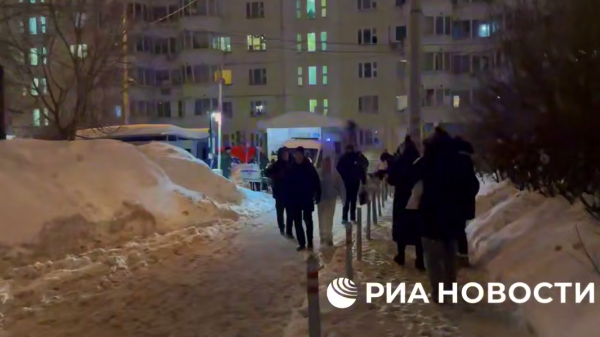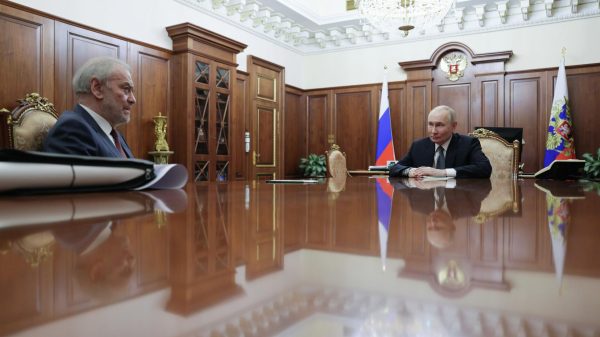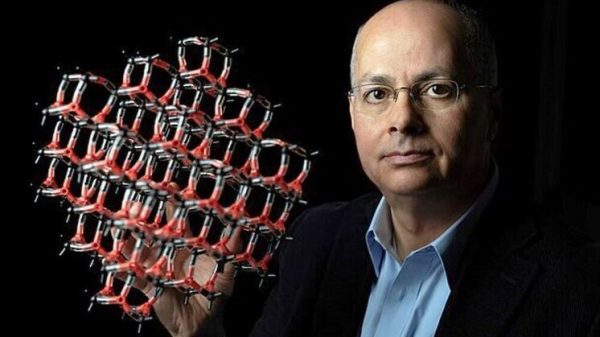Pete Buttigieg’s short, powerful new book is about the necessity of trust, “personal, social and political”. But it is also a brisk account of what has led the US so close to the abyss, everything from the “sense of comfort and legitimacy” conferred on white supremacists by a deranged president to 40 years of union-bashing that started with Ronald Reagan.
‘Vote like your life depends on it’: Pete Buttigieg’s message to LGBTQ youth
Read more
The book offers further proof, were it needed, that the former mayor of South Bend, Indiana, also a former presidential candidate, has the most interesting political mind since Barack Obama.
Buttigieg’s first book, Shortest Way Home, was a hit, selling nearly 150,000 copies as its author ran strongly in the Democratic primary. Editor Bob Weil was enthusiastic, therefore, when Buttigieg agreed to come down from the campaign trail by spending three months sequestered at home, writing through the pandemic.
“It was a very different kind of writing: a little more frantic,” Buttigieg told the Guardian, in his first interview about his life as an author. “But in some ways [it was] more focused too. Because of that pressure of time. As always, Bob was exacting and supportive. I couldn’t have done it without him.”
By phone from South Bend, where he served two terms as mayor, Buttigieg discussed the dangers of the internet and where and how he writes – on a Mac in an extra bedroom converted into a study. He also discussed his remarkably diverse reading tastes, which range from the speeches of Gabriel García Márquez to a novel, Godric, by the theologian Frederick Buechner and set in the 11th century. A list of Buttigieg’s recent favorites can be found at the bottom of this piece.
In Trust: America’s Best Chance, Buttigieg is particularly good on the history of the internet. He reminds us of early, utopian predictions about its promise “of democratizing knowledge” which now sound absurd. In 1997, Wired magazine gushed: “Where conventional politics is suffused with ideology, the digital world is obsessed with facts … the Digital Nation points the way toward a more rational, less dogmatic approach to politics.”
Social media “at first seemed like a benevolent force in political organizing”, Buttigieg writes, anatomizing a misconception bolstered by the success of Obama’s brilliant first campaign. “The feel was one of community-building,” Buttigieg adds, but it only took “two election cycles for malicious actors … to weaponize” these platforms, revealing the “instantaneous preferences of our least conscious selves”.
Embed
“In catering to those cravings,” he writes, “the algorithms themselves became radicalizing.” And when the pandemic hit last winter, “across America, like a compromised immune system, distrust itself proved a dangerous preexisting condition.”
Amoral v immoral
On the page, Buttigieg calls the technology behind social media platforms “amoral”. The “purveyors of conspiracies have more tools at their disposal than ever,” he writes, “making it possible to disseminate dangerous lies on a massive scale and at unprecedented speed … We have lost access to the basic levels of trust that democracy demands.”
On the phone, I said the testimony of ex-employees of Twitter, Facebook and Google in the new docudrama The Social Dilemma suggested “immoral” would be more accurate – especially since those nefarious algorithms automatically directed anyone reading a single post about a phony conspiracy like Pizzagate to hundreds more on the same dangerous, fake subject.
“Hmmm,” Buttigieg replied. “[The tech companies] certainly have to accept responsibility in a way that they just haven’t yet. And I think often to them it’s still viewed as a kind of black box – almost a sort of genie that they don’t bear responsibility for. But of course these algorithms are created by people … and huge sums of money are being made off of them. These tech companies really have to change their understanding of what their responsibilities truly are.”
We can blame the technology but in the end the question is about what choices we are going to make
He also agreed that a “revivified antitrust policy” should include the social media platforms.
“The real antitrust problem is how these companies will use their dominance in one market to wind up establishing dominance in another,” he said. “Some of these are actually pretty classic problems of monopoly. So … some of this may be just a matter of enforcement. And how willing the administration is to step forward and intervene.”
On the other hand, Buttigieg declined to endorse my description of Twitter as “arguably the worst invention in the history of humanity”.
“It’s certainly got a lot to answer for,” he said, adding that it might be “too soon to render a verdict just yet”.
The biggest problem of all, I proposed, might be the way “controversy has become monetized.”
“That’s right,” Buttigieg said. “And it is more valuable to them that it be controversial, period, than that it be right or left or accurate or inaccurate. And that is very dangerous.”
He was optimistic about our capacity “to develop an increasing level of sophistication as consumers of these things … I think in time we’ll become more advanced consumers of this kind of digital information, and misinformation. But we’re not there yet. And the problem of course is that new media are developing more quickly than we can learn how to deal with them. And that’s extremely dangerous.
“We can blame the technology but in the end the question is about what choices we are going to make, whether it’s through regulation or through whatever personal disciplines we cultivate – so that we are not at the mercy of the ways we can be hacked. The problem is not so much that the systems can be hacked as it is that our minds can be hacked. And that I do agree is already under way.”
‘A large-scale, fully pluralistic, fully democratic society’
We spoke the day before the first, disastrous presidential debate.
Trump ensures first presidential debate is national humiliation | Analysis
Read more
“I feel optimistic and terrified about what is going to happen on election day,” I said. “How do you feel?
“The same,” Buttigieg replied. Then he mixed optimism with dread.
“If we get this right, it could be an extraordinary moment in the development of the American Project. Because if we get it right and certain things happen in the decade to come then we could deliver something the world hasn’t really seen. Which is a large-scale, fully pluralistic, fully democratic society.
“It would take a lot to get there. We’ve never quite been that, even though that’s what we want to be. But by 2045 we would be a majority minority nation, governed by those principles – we could authentically be a democracy by then. It would be a very important thing in the world.
“Of course door number two is that this decade marks the end of the American Project as we know it. We have this American decline. It’s been under way for a while but it gets locked in.
“We have to stop that from happening.”
Pete’s picks – a reading guide
I’m Not Here to Give a Speech – Gabriel García Márquez
“It was short and digestible, which was perfect for the campaign trail. It’s just very García Márquez: it’s poetic and every sentence is pregnant, just really nicely done. It was a real find.”
The Mirror & the Light – Hilary Mantel
“I finished the third book of Hilary Mantel’s Wolf Hall Trilogy, some of the best writing about politics that I’ve read lately. Again introspective but also very perceptive about the nature of politics and power … It’s not so close to home because you’re dealing with Henry VIII. I read her first novel when I was a young mayor, trying to imagine how I would have fit into that world. I was the equivalent of a very minor nobleman in that political landscape. And then I came to a presidential campaign and found myself more than anything relieved that things don’t end quite as poorly for political figures as they tended to in Henry’s England.”
Election Meltdown – Rick Hasen
“Rick Hasen’s book is extremely timely, because we have a lot of concerns about what’s going to happen in this election. There are a lot of specific problems and I think he’s got a handle on what those issues are and how to stay ahead of them.”
For Common Things – Jedediah Purdy
“I find myself returning to a book that probably isn’t getting so much attention right now, although it’s probably one of the more important things in philosophy that someone of my generation has produced. It was kind of a debut that launched understanding of his kind of communitarian philosophy. I returned to it because a lot of what he was doing – when he wrote that it was really a response to the culture of irony that dominated the 90s. It’s a really important read.”
I Have Something to Tell You – Chasten Buttigieg
“Of course I’ve got a very soft spot for Chasten’s book, which I loved being at his side as he produced. That’s a story that’s different from my story but I hope many people see themselves in.”
America’s ‘untouchables’: the silent power of the caste system
Read more
The Meritocracy Trap – Daniel Markovits & The Tyranny of Merit – Michael Sandel
“A pair of books on meritocracy that I think we’ll be hearing a lot about in the weeks ahead.”
Caste – Isabel Wilkerson
“Isabel Wilkerson’s book is probably going to stand as one of the most important books to arrive during this moment of racial reckoning – but also just as a piece of literature. It was the kind of thing I was aspiring to in a smaller way in my book, to have a level of storytelling fitted to a social commentary. She I think has set a new bar for non-fiction in the US.”
Godric – Frederick Buechner
“One more people don’t hear about much. An Iowan supporter turned me to Frederick Buechner, a theologian. He has this wonderful little novel, which is set in the 11th century. It’s a wonderful kind of departure from the news of the day.”





















































Свежие комментарии